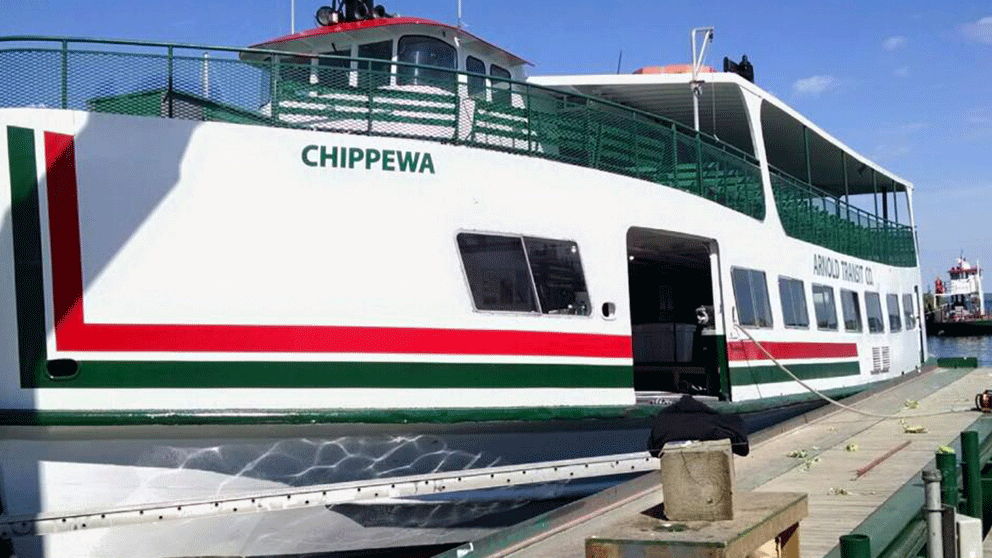
Mackinac Island Ferry is set to convert a passenger vessel to zero-emissions electric power
With $3 million in financial support from the Michigan Department of Environment, Great Lakes and Energy (EGLE) Fuel Transformation Program, the Mackinac Island Ferry service is converting one of its vessels to run on zero-emissions electric power.
Built in 1962, the Chippewa will be the first ferry within the passenger fleet to be converted to electric power and will serve as a pilot project for the electrification of all 28 vessels. The prohibition of vehicles on the island makes the fleet’s modernization essential.
The Chippewa will have its two 1988-built diesel engines replaced with two new electric propulsion motors. The new fitting will reduce the ferry’s greenhouse gas emissions by 14,152 metric tons of carbon dioxide equivalents and 887 metric tons of nitrogen oxides during its lifespan. The 84-foot (25.6-metre) ferry will also be redesigned and modernized.
Under the Mackinac Island Transportation Master Plan, the electrification project represents an important step towards the long-term goal of transitioning all 138 Upper Great Lakes vessels ranging from 50 to 200 tons to electric or hybrid power.